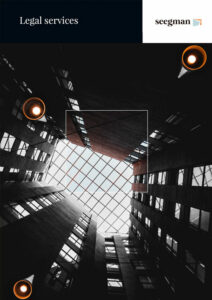
Start-ups, Law 28/2022 of 21 December
If you are thinking of launching a start-up in Spain, Law 28/2022 of 21 December could mark a turning point for your project. It is
This position was reiterated by the Directorate General for Legal Certainty and Public Faith (DGSJFP) in its Resolution of June 10, 2025, following the same doctrine already established in the Resolution of October 3, 2023, and in previous resolutions such as those of April 28, May 3, and October 20, 2015.
In the case at hand, the Registrar had rejected the filing of a company’s annual accounts because the auditor’s report contained an unfavorable opinion. The auditor justified the opinion by stating that the accounts “do not give a true and fair view of the company’s assets and financial position as of December 31, 2021, in all material respects.”
However, the DGSJFP overturned the negative registration classification, stating that the mere existence of an unfavorable opinion does not constitute legal grounds to deny the filing. What is relevant is that the auditor was able to carry out his work and issue the report, even if it is negative, and not whether or not that opinion coincides with a true and fair view of the company.
In this regard, the Directorate General distinguishes between three situations: (i) report with a favorable opinion (no obstacles to filing), (ii) report with a denied or unfavorable opinion (filing is permitted if the auditor has been able to carry out its work), and (iii) absence of an opinion due to the impossibility of auditing, either due to lack of cooperation (Article 6 of the Audit Act) or due to the absence of auditable data (Article 10.2.b of the Audit Act Regulations). Only in the latter situation is the refusal of filing justified.
The resolution also recalls that one of the essential purposes of the filing of accounts is precisely the disclosure of accounting information, including information that may highlight irregularities or deficiencies. Refusing filing in such cases would mean concealing critical information from partners and third parties and depriving the registration system of its transparency function.

If you are thinking of launching a start-up in Spain, Law 28/2022 of 21 December could mark a turning point for your project. It is

Corporate tax is one of the main tax burdens for any company in Spain. But it is not all obligations: our system also offers tools

Executive summary In January 2025, the Organic Law 1/2025 was introduced, which amended article 365.3 of Spain’s Companies Act (LSC). The reform grants company directors